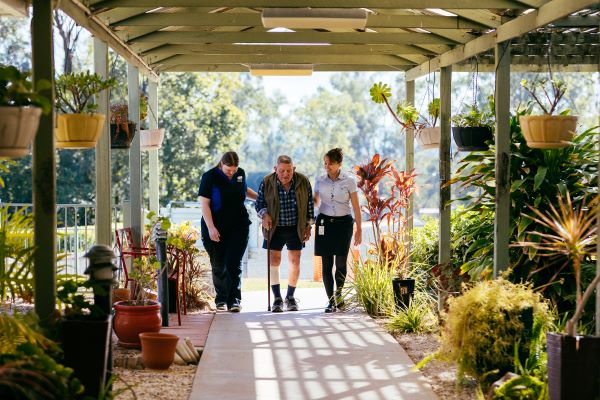
Frailty, an encompassing vulnerability due to weakness and poor health, it is not age specific and results in a decreased ability to cope and participate in activities of daily living. Recognising this, Wide Bay Hospital and Health Service (WBHHS) has launched a dedicated Frailty Awareness Month, spearheaded by the Frailty Focus Group. Their mission: to educate the community about frailty's risks, enabling early recognition and encouraging participation proactive engagement in community activities.
In the Wide Bay, an aging population faces frailty exacerbated by social isolation. The Frailty Focus Group emphasises that social isolation can silently contribute to frailty, leading to decreased function and increased care needs. By remaining physically and socially active residents are able to fight frailty!
To address these challenges, WBHHS offers diverse programs. The Frailty Focus Group promotes education and awareness, encouraging community participation. The Hospital Healthy Ageing initiative ensures inpatients are nourished, hydrated, and engaged. Currently at the Maryborough Hospital Foyer there is a display full of resources as suggestions to help residents remain active in the community and GPs can refer to WBBHS’s Falls Prevention Program.
During Frailty February, WBHHS intensifies its efforts. Staff undergo educations session, and the community is engaged through displays and one-on-one education sessions. This multifaceted approach aims to increase awareness and prompt proactive responses to frailty.
Deconditioning can occur at any time but is a significant concern following hospital stays. It results in reduced energy, poor balance, muscle loss, and an increased risk of falls. Astonishingly, one week of deconditioning necessitates four weeks of reconditioning. The consequences extend to pressure injuries from remaining immobile & having extended periods of bed rest & sitting, reduced bone density, fractures, chest infections, and mental health issues.
Get up, Get dressed & Get moving and similar programs become vital components in breaking the cycle of "pyjama paralysis" during hospital stays and at home. By encouraging patients & our community to maintain their usual activities, these initiatives can assist in helping prevent muscle loss, support independence, and reduce the need for prolonged hospitalisation.